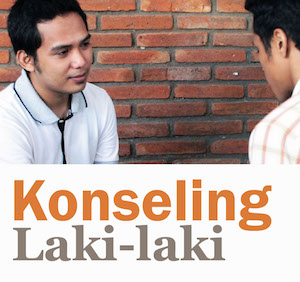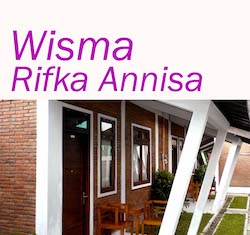On Friday, 19th February 2016, Rifka Annisa visited the meeting of the PKK community in Yogyakarta. About fifty women attended the meeting and listened to the presentation of Rifka Annisa staff which was discussed afterwards. After singing the hymn the district leader addressed an assembly. The forum started and was followed by some speeches of the PKK members.
After several talks, the presentation of Rifka Annisa took place. Primarily there was shown an emotional video concerning violence against women. Topics like economic discrimination, shown in cases in which women earn less money than men and domestic violence by a woman’s husband or even her family were present. Women have difficulties with getting access to work which often leads to money problems. This, in turn, causes violence again.
The presentation started with the issue of domestic violence and its impact to children. Everybody has that desired imagination of a family living together in love, peace and harmony. But violence against women still exists as an everyday problem. Gender-based violence in most cases leads to illness, which can occur in a physical, psychological and/or sexual manner in either public or domestic situations. A statistical table from 2009 till 2015 shows different categories concerning cases of violence. It is clearly recognizable that the number of all these cases increased in this period of time.
There are different consequences of violence in each case. Physical violence will firstly lead to pain and sorrow. The impact of psychological violence is visible in fear, loss of self-confidence and strong mental torture. In addition to that feelings of helplessness and the loss of means or instruments occur. Sexual violence which means forced sexual contact is present in a woman’s own household either by their husband or by other people for commerical purpose.
The impact is distinguished in immediate and long-term consequences. The immediate impact contains the physical injury, worriedness and miscarriage. Aside from that there are long-term outcomes like trauma, physical deformation and a very negative state of health. The physical, mental and reproductive health is in a highly negative condition. Eventually a cronical condition of illness is caused by domestic violence.
The impact concerning children is discussed as well. Children imitate the experienced aggressive behaviour of their parents which yields big problems. There is a cycle of violence which starts with the feeling of being sorry just after being violent, continuing with prosecution in which a conflict erupts again that entails violence anew. As soon as children are left alone there is violence against friends as well as sexual violence that leads to marriage in children’s age and results in violence again because of the experienced behavior.
Rifka Annisa hopes to turn this cycle into one of positive care. Children should experience their families‘ love and be self-confident and get a feeling of self-worth. So they can find a suitable partner and live together in a house without violence. This fact produces a positive welfare again. In conclusion domestic violence is not only a women’s problem but it represents a big issue concerning both women and men which has to be discussed and resolved.[]
Writer: Lisa Hallmann, student of Ethnology, University Heidelberg, Germany







